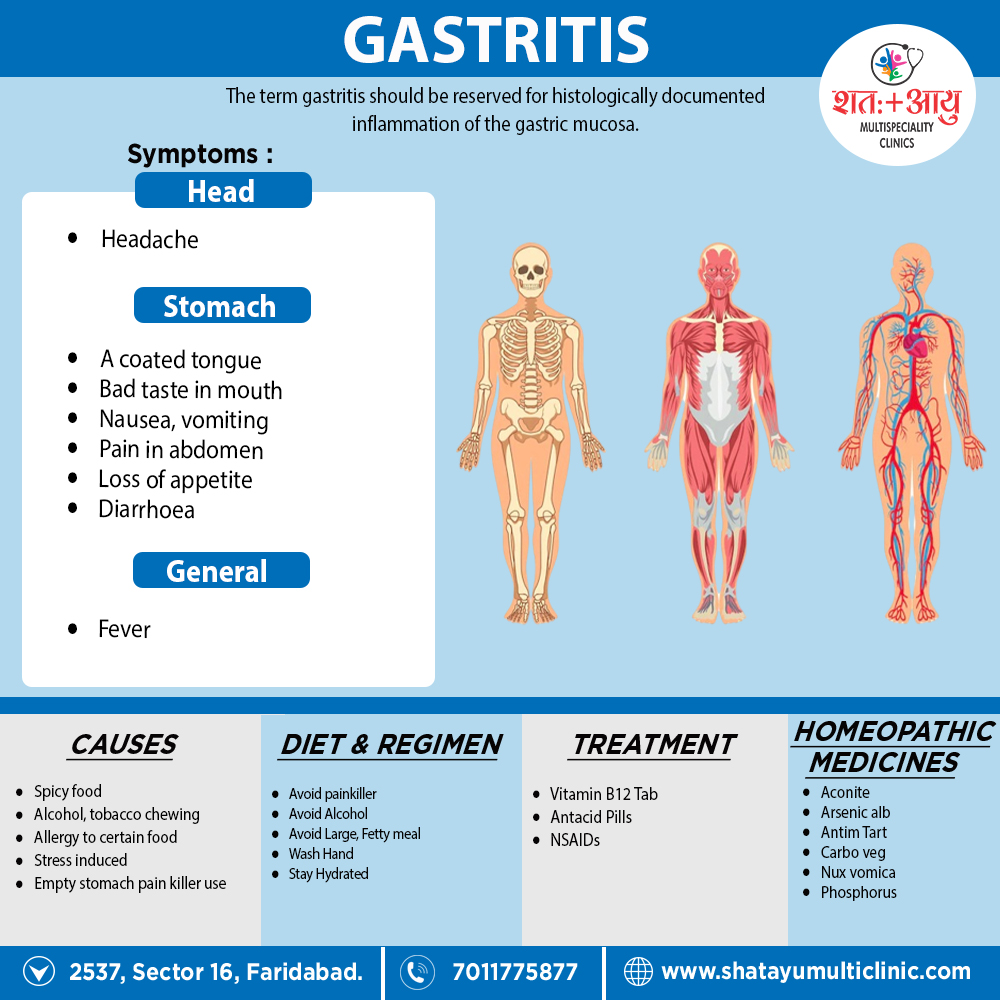Risk factors of Gastritis
Factors that increase your risk of gastritis include:
Bacterial infection-
Although infection with Helicobacter pylori is among the most common worldwide human infections, only some people with the infection develop gastritis or other upper gastrointestinal disorders. Doctors believe vulnerability to the bacterium could be inherited or could be caused by lifestyle choices, such as smoking and diet.
Regular use of pain relievers-
Pain relievers commonly referred to as nonsteroidal anti-inflammatory drugs (NSAIDS) — such as ibuprofen (Advil, Motrin IB, others) and naproxen sodium (Aleve, Anaprox DS) — can cause both acute gastritis and chronic gastritis. Using these pain relievers regularly or taking too much of these drugs may reduce a key substance that helps preserve the protective lining of your stomach.
Older age-
Older adults have an increased risk of gastritis because the stomach lining tends to thin with age and because older adults are more likely to have H. pylori infection or autoimmune disorders than younger people are.
Excessive alcohol use-
Alcohol can irritate and erode your stomach lining, which makes your stomach more vulnerable to digestive juices. Excessive alcohol use is more likely to cause acute gastritis.
Stress-
Severe stress due to major surgery, injury, burns or severe infections can cause acute gastritis.
Cancer treatment-
Chemotherapy drugs or radiation treatment can increase your risk of gastritis.
Your own body attacking cells in your stomach-
Called autoimmune gastritis, this type of gastritis occurs when your body attacks the cells that make up your stomach lining. This reaction can wear away at your stomach’s protective barrier.Autoimmune gastritis is more common in people with other autoimmune disorders, including Hashimoto’s disease and type 1 diabetes. Autoimmune gastritis can also be associated with vitamin B-12 deficiency.
Other diseases and conditions-
Gastritis may be associated with other medical conditions, including HIV/AIDS, Crohn’s disease, celiac disease, sarcoidosis and parasitic infections.

